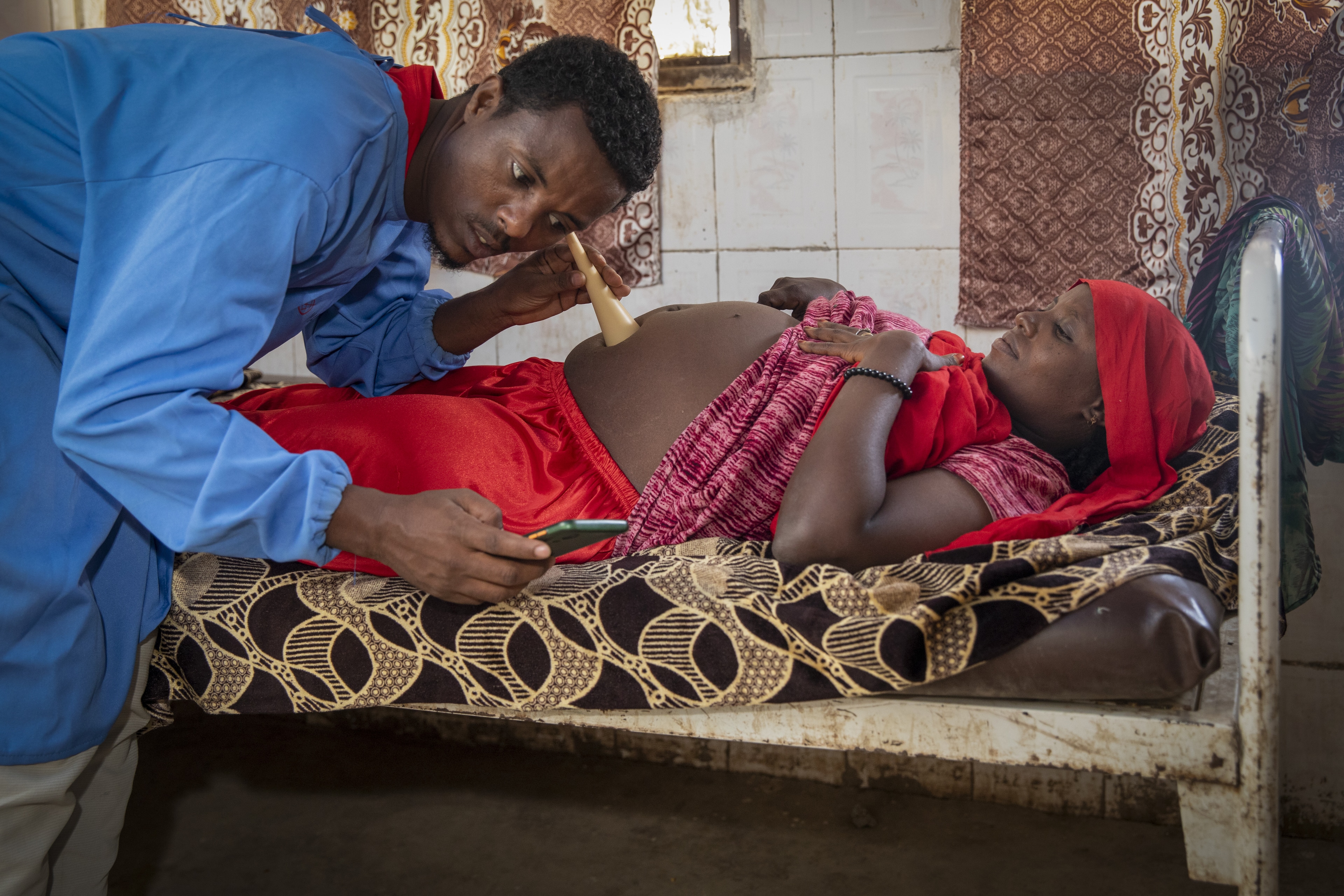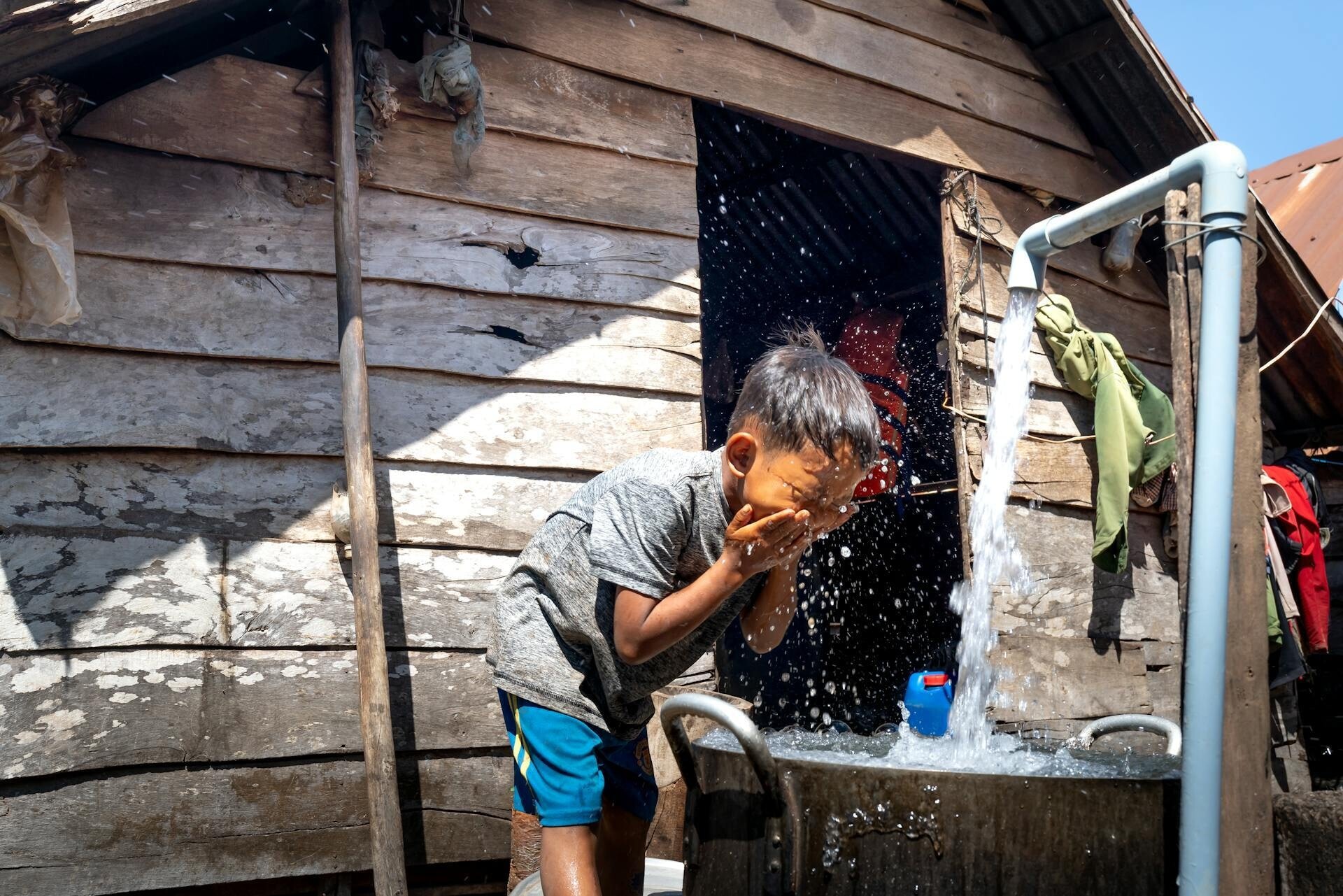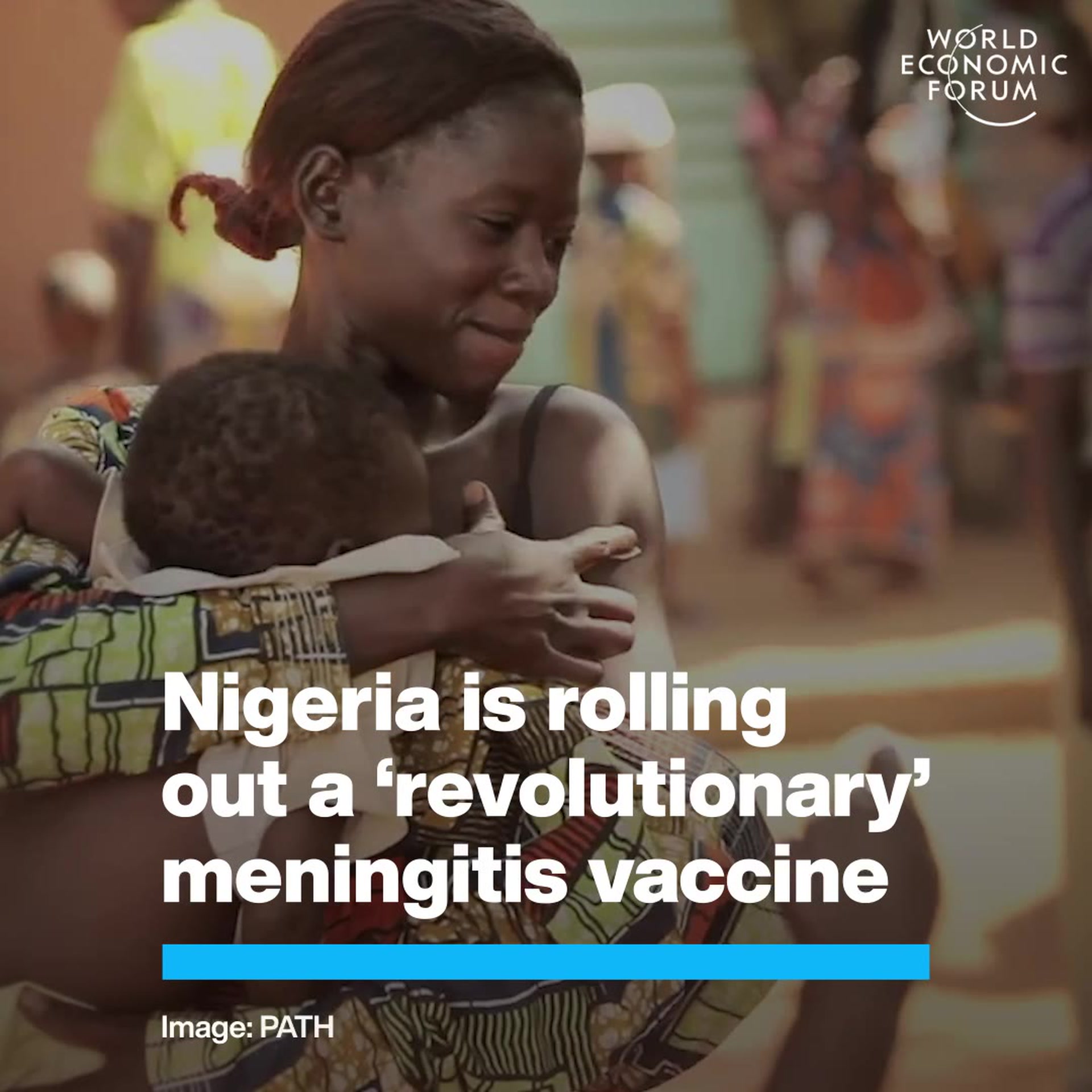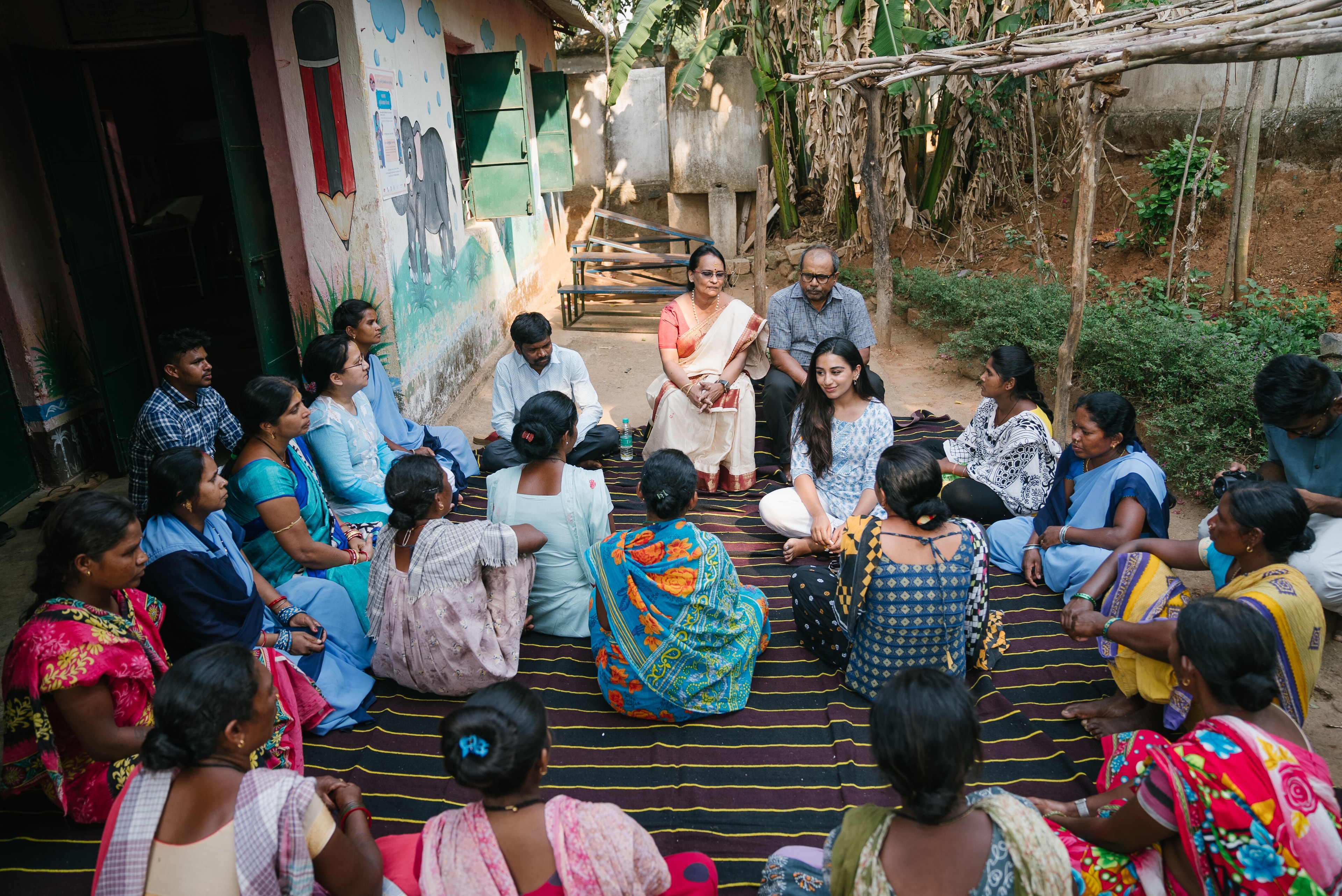We are facing a 'perfect storm' on malaria. But renewed efforts can change the weather

A Kenyan infant receives a malaria vaccination. Image: Reuters/Baz Ratner

Get involved with our crowdsourced digital platform to deliver impact at scale
Stay up to date:
Global Health
- Progress on malaria in Africa is stalling or going into reverse.
- New vaccines and nets provide hope of increasing preventive coverage and protection.
- Coordinated investments can strengthen health systems in preparation.
In September this year, African heads of state used the UN General Assembly to call for urgent action and increased funding to get back on track towards ending malaria as a public health threat. Clouds that had been gathering over efforts to control malaria were threatening to become a perfect storm.
After decades of steady and hard-won gains, progress towards malaria control has stalled or reversed in parts of Africa, which accounts for the vast majority (95%) of the approximately 247 million cases and 619,000 deaths caused by the disease each year. Almost all deaths occur in children under the age of five.
What is the World Economic Forum doing about access to vaccines?
Climate change has enabled the anopheles mosquito that spreads the malaria parasite to expand its range into new territories. Adding to this threat is the emergence of the Anopheles stephensi mosquito in eastern and western Africa. This malaria-carrying mosquito breeds all year round and thrives in urban settings – setting it apart from the other mosquitos in Africa that primarily exist in rural areas. At the same time, an increase in the frequency and severity of droughts and floods has hampered efforts to control mosquito populations. Growing resistance to the most widely available insecticides and drugs has also started to erode the impact of key measures to prevent and treat the disease. Already fragile health systems have been further weakened by the COVID-19 pandemic.
Hope, however, is far from lost. Our organizations – Gavi, the Vaccine Alliance, and the Global Fund – are at the heart of efforts to roll out new, game-changing innovations in the countries we support. And by working in step more than ever before, we can multiply the impact of new innovations, strengthen health systems and turbo-charge malaria-control efforts.
The adage that “prevention is better than cure” is a fundamental tenet of malaria control. Early detection and treatment in adults can usually lead to a good clinical outcome, but in children under five success rates are far lower. In young children, we must prevent malaria infections from taking hold in the first place, and we now have two powerful new tools that do just that.
First up is a new generation of mosquito nets treated with a combination of active ingredients that, together, are a more powerful deterrent to the anopheles mosquito than existing formulations. This new generation of nets is key to overcoming the evolved resistance to insecticides that has spread in some mosquito populations.
Second, we are on the cusp of a new era of vaccination against malaria. The RTS,S/AS01 malaria vaccine was a resounding success in large-scale national pilots, reducing all-cause mortality by 13%. The first doses for non-pilot Gavi-supported countries shipped in November 2023, ready for their introduction as part of routine immunization programmes in 2024. Fast on its heels, a second vaccine may be ready for introduction to countries in mid-2024, helping to broaden access and accelerate coverage.
As powerful as either of these innovations might be on their own, neither will be game-changers used in isolation. The real gains come when we coordinate their roll-out together, along with seasonal chemoprevention. Above all, we will only succeed if we redouble our efforts to end the stark inequities that continue to fuel malaria – ensuring that these innovations reach the most vulnerable communities. These joint efforts can have a profound positive impact beyond malaria control.
When Gavi and the Global Fund work together with each other and with countries to introduce these new innovative countermeasures, we will also be coordinating investments to strengthen key health system functions that can be “benefit multipliers” for public health. Targeted strengthening of service delivery, data systems, cold chain and supply chain management and resilience, to name a few examples, not only facilitates the rapid and efficient roll-out of malaria innovations, but can have significant knock-on benefits for outbreak preparedness and response, primary healthcare and routine immunization.
We must not and do not underestimate the challenges ahead, but we can still look to the future with optimism. The Global Fund partnership has cut the combined death rate from AIDS, tuberculosis (TB) and malaria by more than half, saving nearly 60 million lives since 2002. Gavi has helped vaccinate a whole generation – over 1 billion children since 2000, preventing more than 17 million future deaths. But never before have we had the tools we have now to change the face of malaria control. Through innovation, collaboration and promotion of equity, we can support countries to weather the storm of malaria today, and play a part in enabling many thousands of children to see the clearer skies ahead.
Don't miss any update on this topic
Create a free account and access your personalized content collection with our latest publications and analyses.
License and Republishing
World Economic Forum articles may be republished in accordance with the Creative Commons Attribution-NonCommercial-NoDerivatives 4.0 International Public License, and in accordance with our Terms of Use.
The views expressed in this article are those of the author alone and not the World Economic Forum.
Related topics:
The Agenda Weekly
A weekly update of the most important issues driving the global agenda
You can unsubscribe at any time using the link in our emails. For more details, review our privacy policy.
More on Health and Healthcare SystemsSee all
Anna Cecilia Frellsen
May 9, 2024
Angeli Mehta
May 8, 2024
Emma Charlton
May 8, 2024
Kate Whiting
May 3, 2024
Kiran Mazumdar-Shaw
May 2, 2024






